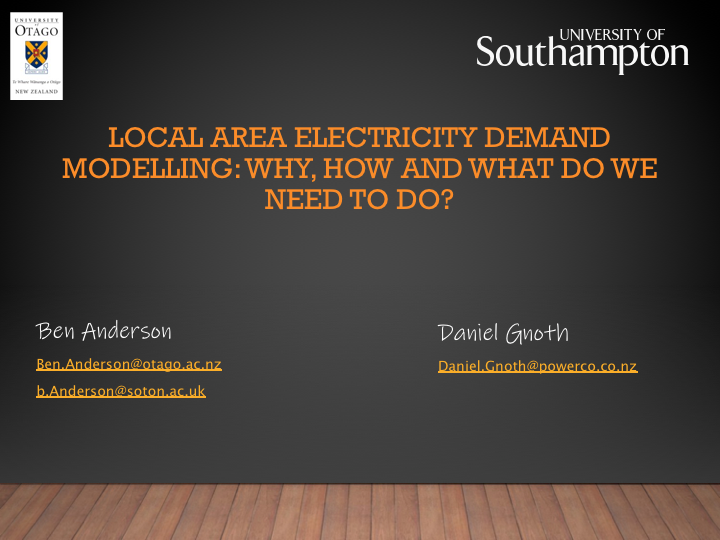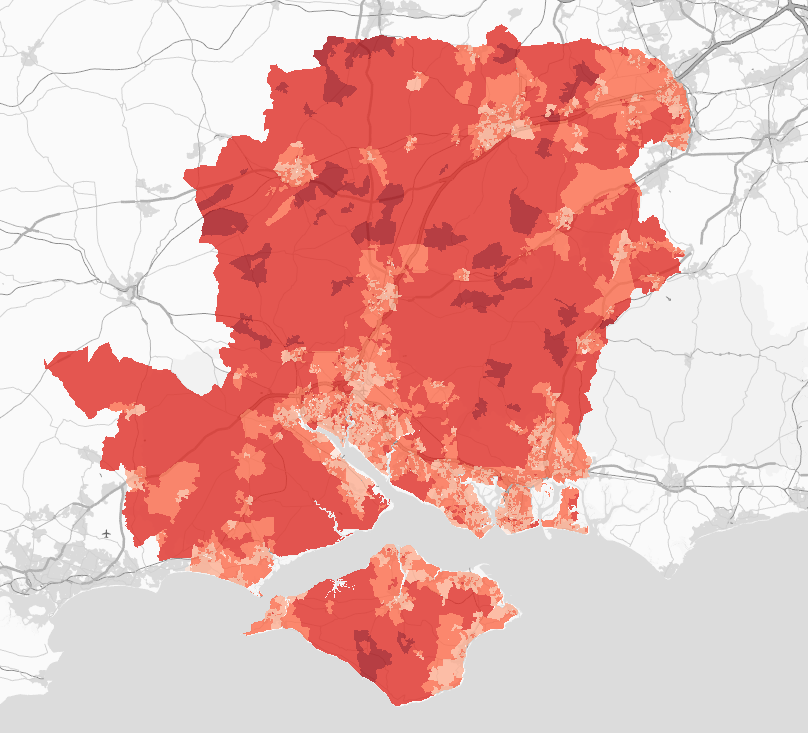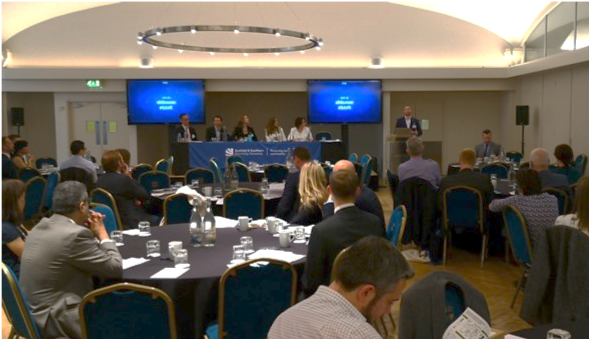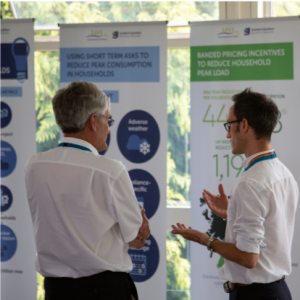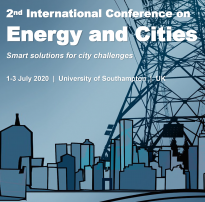Analysis of New Zealand GREENGrid household electricity demand data conducted by Dr Ben Anderson and colleagues at the University of Otago as part of Ben’s MSCA Global Fellowship have provided unique insights into the compnents of peak residential electricity demand in New Zealand. The analysis, which was also supported by the New Zealand Energy Efficiency […]
Energy and Behaviour
Dr Ben Anderson’s work analyzing the charging patterns of a sample of electric vehicles monitored by FlipTheFleet in New Zealand has contributed to a major new report to the New Zealand Parliamentary Commissioner for the Environment (PCE). The report, which covers a wide range of analyses from a range of contributors incorporated Ben’s analysis, conducted […]
Dr Ben Anderson and Dr Daniel Gnoth (PowerCo) have co-convened a workshop on “Local Area Electricity Demand Modelling: Why, how and what do we need to do?” held at the University of Otago, New Zealand on 20th November 2019. The workshop, which attracted over 20 attendees from across the New Zealand electricity sector was a […]
This page highlights a key output of the modelling conducted by the University of Southampton for the Solent Achieving Value from Efficiency (SAVE) project. Background: The SAVE Customer Model provides a household typology of 22 ‘customer types’ defined by household size, dwelling size and primary heating fuel. Each of these characteristics was shown to be […]
It’s been a busy month or so for the Solent Achieving Value from Efficiency (SAVE) project. On 6th June 2019, Dr Tom Rushby and Prof Patrick James from the University of Southampton team joined project partners at a special event to mark the close of the project. The event was held at Central Hall, Westminster. […]
Dr Ben Anderson presented an update on his local area electricity demand modelling work carried out under the SPATIALEC MSCA Global Fellowship at the International Conference on Energy and Cities (ICEC) 2019 held at the University of Southampton. He discussed results from a preliminary model using NZ Census 2013 and GREEN Grid project data to […]
Dr Ben Anderson presented an update on his local area electricity demand modelling work carried out under the SPATIALEC MSCA Global Fellowship at the 7th World Congress of the International Microsimulation Association held at the University of Galway. He discussed results from a preliminary model using NZ Census 2013 and GREEN Grid project data to […]
Dr Ben Anderson has presented insights from his SPATIALEC EU MSCA Global Fellowship as part of an invited presentation at a BRANZ-hosted workshop on designing a future NZ domestic Energy End-Use study held in Wellington on April 4th 2019. Ben discussed the contribution of hot water and heat pump use to peak demand in NZ […]
Dr Ben Anderson presented an update on his local area electricity demand modelling work carried out under the SPATIALEC MSCA Global Fellowship at the Regional Science Association Australasia Conference in Christchurch, NZ in February. He discussed results from a preliminary model using NZ Census 2013 and GREEN Grid project data to model small area lighting […]


